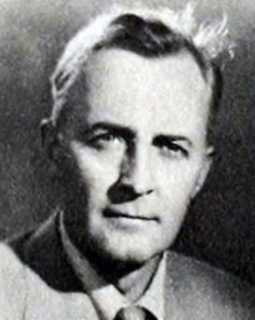Цитата Александра Гамильтона
Тот, кто внимательно рассматривает различные отделы власти, должен понять, что в правительстве, в котором они отделены друг от друга, судебная власть по характеру своих функций всегда будет наименее опасной для политических прав Конституции; потому что это будет меньше всего способно раздражать или ранить их.
Связанные цитаты
В саду нет ни патриархата, ни матриархата; двое контролируют друг друга. Адаму не дана произвольная власть; Ева должна прислушиваться к нему лишь постольку, поскольку он повинуется их Отцу — и кто это решает? Она должна следить за ним так же, как и он за ней. Это, если хотите, система сдержек и противовесов, в которой каждая сторона так же самостоятельна и независима в своей сфере, как правительственные ведомства согласно Конституции, и так же зависят друг от друга.
Признавая, что сила воли является высшим судом над всеми другими областями моего разума, я буду ежедневно упражняться, когда мне понадобится побуждение действовать для какой-либо цели; и я буду формировать привычки, предназначенные для того, чтобы приводить силу моей воли в действие по крайней мере один раз в день.
Что будет последствием, если Конгресс неправильно истолковает эту часть [необходимый и надлежащий пункт] Конституции и осуществит полномочия, не оправданные его истинным значением, я отвечаю так же, как если бы они неправильно истолковали или расширили любую другую власть, предоставленную в них . . . успех узурпации будет зависеть от исполнительной и судебной власти, которые должны разъяснить и провести в жизнь законодательные акты; и, в крайнем случае, средство защиты должно быть получено от народа, который может путем избрания более верных представителей отменить действия узурпаторов.
В республиканском правительстве обязательно преобладает законодательная власть. Средство от этого. . . заключается в разделении законодательной власти на разные ветви; и сделать их посредством различных способов избрания и различных принципов действия настолько мало связанными друг с другом, насколько это допускает природа их общих функций и их общая зависимость от общества.
Поскольку законодательный, исполнительный и судебный департаменты Соединенных Штатов координируют свои действия и каждый из них в равной степени обязан поддерживать Конституцию, отсюда следует, что каждый из них должен при выполнении своих функций руководствоваться текстом Конституции в соответствии со своими собственными полномочиями. толкование его.
Но хладнокровные и искренние люди тотчас же сообразят, что самое чистое из человеческих благ должно иметь в себе долю сплава, что выбор всегда должен делаться если не из меньшего зла, то по крайней мере из БОЛЬШОГО, а не СОВЕРШЕННОГО добра. ; и что в каждом политическом учреждении способность способствовать общественному счастью предполагает осмотрительность, которой можно злоупотреблять и злоупотреблять.
Конституция — это акт не правительства, а народа, образующего правительство; а правительство без конституции есть власть без права. Всякая власть, осуществляемая над нацией, должна иметь какое-то начало. Это должно быть либо делегировано, либо принято. Других источников нет. Вся делегированная власть есть доверие, а всякая принятая власть есть узурпация. Время не меняет природу и качество ни того, ни другого.
Судебные активисты — не что иное, как радикалы в мантиях — презирающие верховенство закона, по своей воле нарушающие Конституцию и использующие общественное доверие для навязывания обществу своих политических предпочтений. Фактически, никакое радикальное политическое движение не было более эффективным в подрыве нашей системы правления, чем судебная система. И с каждым сроком полномочий Верховного суда мы, затаив дыхание, надеемся, что судьи больше не причинят вреда, прекрасно понимая, что они разочаруют. Такова природа судебной тирании.
Власть — это великое зло, с которым мы боремся. Мы разделили власть между тремя ветвями власти и установили систему сдержек и противовесов, чтобы предотвратить злоупотребление властью. Однако, где проверка власти судебной власти? Если мы не сможем обуздать силу судебной власти, я предсказываю, что в конечном итоге мы будем жить под судебной тиранией.
Если они будут включены в Конституцию, независимые суды будут особым образом считать себя хранителями этих прав; они будут непроницаемым бастионом против любого захвата власти законодательной или исполнительной властью; они, естественно, будут вынуждены сопротивляться любому посягательству на права, прямо предусмотренные в Конституции декларацией прав.
Ни одна часть государственного управления не требует обширной информации и досконального знания принципов политической экономии так, как налоговая деятельность. Человек, лучше всех понимающий эти принципы, с меньшей вероятностью прибегнет к репрессивным приемам или принесет в жертву какой-либо конкретный класс граждан ради получения доходов. Можно показать, что самая производительная финансовая система всегда будет наименее обременительной.





























